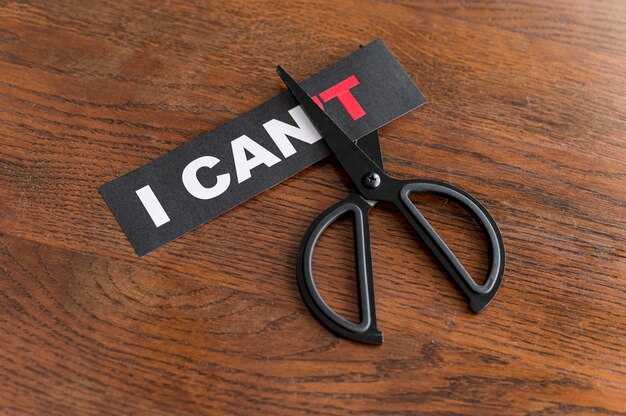This is not merely a relationship with routine highs and lows. What you’re caught in is a deliberate psychological scheme. The avoidant person in your life isn’t accidentally creating a push-pull pattern — they engineer it intentionally, with the finesse of a practiced manipulator. They know how to convert your assurance into unease, your sense of safety into frantic need. This isn’t confusion or miscommunication. It’s intentional design: the avoidance-interest trap. A refined mechanism whose sole aim is to inflate their ego by making you dependent on the irregular drops of approval they dole out. Don’t fall for the trauma excuse — the truth is a calculated reliance on intermittent reinforcement. They hand you just enough encouragement to keep you invested and just enough distance to keep you chasing. That repeating cycle leaves you off-kilter, doubting your value. This examination will dismantle that trap, piece by painful piece, exposing the pattern not to rehabilitate them but so you can recognize the reality: a game with no prize for you, and learn how to walk away.
To see how the trap is assembled, imagine a cunning economist manipulating a marketplace. The basic rule of value is supply and demand: when something is plentiful, its worth feels steady; when it becomes scarce, perceived value soars and people compete for it. The avoidant takes this cold market logic and applies it to what should be inexhaustible in a loving bond — their affection. This is the first phase: the architecture of scarcity. It starts subtly in their communication. They practice emotional rationing. You write a vulnerable message about your day or feelings and get back an emoji, a flat response, or a single word. You watch the typing dots flicker and vanish, knowing they composed more but chose to send less. This isn’t merely poor texting habits — it’s intentional withholding. The psychological result is potent: you learn to cherish rare moments of warmth and accept their regular coolness as normal. You polish messages into perfection, hoping to earn more than a half-hearted reply. You are now competing for an affection they have deliberately made rare.
They also become masters of selective availability. You see activity — stories, likes, comments — but your message lingers on delivered for hours or days. That’s not genuine busyness; it’s a demonstration of control that places your needs low on a hierarchy. It leaves you sifting through every interaction for hidden meanings, never sure which version of them you’ll get: the warm partner from last week or the distant stranger of today. You grow hypervigilant, relieved and grateful for any time they deign to give you.
Scarcity is intensified with manufactured rivals. They might casually mention an ex who still texts or spend disproportionate time with someone clearly attracted to them. When you voice concern, you’re labeled insecure or jealous, while their continued attention to others sends a stark, unspoken message: my attention is limited and contested — prove you’re worth it. Suddenly you’re competing with ghosts and possibilities, striving to be more interesting, more accommodating, less demanding — all to claim a larger share of their precious emotional currency.
Perhaps the cruelest scarcity is physical proximity without emotional presence. They sit beside you but are emotionally elsewhere: absorbed in their phone, bored at an event, as if they’d prefer every other option. Being physically together while feeling invisible is devastating. It pushes you to be louder, funnier, more entertaining just to capture a sliver of attention they freely give to screens. You’re trained to accept crumbs of connection. This is the foundation: they have turned a steady river of affection into a parched oasis. They make you thirsty — and once you are, they can set the bait.
The bait is the phase that most convincingly masquerades as progress. It feels like you’re moving toward something genuine, but in reality you are being conditioned to beg for what should be freely offered. They dismantle your standards and recast basic needs as accomplishments you must earn. Love stops being a mutual commitment and becomes a performance-based contract. You are constantly auditioning for a place you once held by right.
It begins with reframing your desire for connection as neediness. When you share everyday details, you’re met with annoyance or told it’s “too much.” Ask for steadier communication and you’re branded clingy or controlling. They teach you through punishment and reward: protest and they punish with silence; appear distant and self-sufficient and they reward you with a sudden flourish of attention. This conditioning is corrosive. You learn that their presence is something you win by being small and undemanding. You police your feelings, convinced that your needs are the problem rather than their refusal to meet them.
Their warmth becomes strictly conditional on your emotional labor. Loving them turns into your full-time job while they remain a part-time partner. Their kindness vanishes the instant you are troubled or need support. When you’re upset, they’re suddenly busy; when you challenge their behavior, they grow cold and defensive. Affection is the payout for keeping their life easy: you’re praised when you mirror their cheerfulness and invisible when you require anything that threatens their comfort. Relationship support morphs into a service in which your role is to manage their tolerance for intimacy.
They even make basic respect feel like a battlefield victory. Conversations about the relationship are trials where you must prove your feelings and justify your reality. Talks of the future become arguments: you plead for commitment and they defend the status quo. If they finally offer an ounce of what you’ve asked for — a compliment, a hesitant plan, a moment of apparent understanding — it feels monumental. You become grateful for what should be ordinary decency because they have lowered the bar so far that minimal consideration appears as exceptional generosity. This is the bait’s full cruelty: consistency becomes a prize, communication a trophy, respect a spoils to be won.
All of that serves a deeper objective. It isn’t only control — it’s what your struggle provides them. That’s the hook. You’ve adapted to their rules: you manage your needs, perform restraint, and fight for every scrap of warmth. You believe your perseverance will purchase love. The devastating truth is that your effort is not the path to a prize — your effort is the prize. Each time you chase, analyze mixed signals, or labor for approval, you supply them with the purest validation: their narcissistic supply. Your anxiety becomes evidence of their desirability; your pain confirms their power. For someone who avoids vulnerability, this ability to steer your emotional state is intoxicating. With minimal investment they can trigger massive responses in you: a single kind text can lift your whole day; silence can plunge you into despair. They feel significant while remaining safely distant, adjusting the relationship’s emotional thermostat to suit their needs.
Your pursuit also becomes their entertainment. You spend hours dissecting messages, debating their motives with friends, attempting to decode patterns. From your perspective you are dedicated and caring; from theirs you are an engrossing puzzle. They are not seeking to be truly known — true knowing requires vulnerability they refuse — but instead to be observed. Your efforts to unravel them continually validate their complexity and worth, feeding their addiction to being pursued. That addiction is why the cycle endures. Just as you begin to reclaim yourself and pull away, they sense a loss of attention and cast a line: a sudden “I miss you,” a hint at a future, an unexpected burst of affection. This isn’t a sincere attempt to repair intimacy; it’s a calculated move to reignite your chase. They fear losing your attention more than losing you. They prefer being pursued to being settled with — because settling would demand the very mutual, vulnerable investment they avoid. The hook is fully set: your pursuit eclipses your presence. Your anxiety, effort, and heartbreak become more rewarding to them than your wellbeing. The system is built to feed their ego at your expense.
For you, though, it’s unsustainable. As your life becomes organized around this chase, something inside begins to fracture. The trap tightens until the line between their validation and your self-worth vanishes. At this point the dynamic shifts from a chase to a slow erasure of you. Like any addiction, the unpredictability of their attention hijacks your brain’s reward circuitry. Intermittent glimpses of warmth produce a dopamine rush far stronger than the calm pleasure of steady kindness. You become neurochemically bound to the cycle of hope and disappointment, craving the very source of your pain because it’s also your perceived relief.
Your authentic self starts to recede. Choices that once reflected your values now pivot around one question: what will they think? Before sharing an opinion you assess whether it will make you seem intense or dull. Before pursuing an interest you wonder whether it will threaten them. You stop living as a full person and become a tailored performance designed never to provoke their withdrawal. Your needs, preferences, and boundaries are muted to keep their unpredictable interest.
Your world contracts. You might skip long-held plans with friends because the avoidant offers a last-minute window. You turn down events worried about sparking jealousy or because you must keep time free for them. Loved ones note the change — “You’re not yourself” — but their concern feels threatening because it undermines the story you’ve been forced to accept: that this connection is unique and your sacrifices demonstrate devotion rather than control. Isolation deepens dependence, making them the sole, blinding source of validation in an increasingly dim world.
Boundaries that once defined your dignity grind to dust. Broken promises, casual disrespect, and extended silences become normalized. Repeatedly you learn that enforcing a limit or voicing hurt triggers their withdrawal — so you stop. You swallow the pain, make excuses you wouldn’t accept from anyone else, and reduce standards that used to be the baseline of a healthy relationship. Those standards transform into obstacles to keeping what you have.
This leads to the most excruciating phase: the internal split. A civil war begins within. One part of you recognizes, with bone-deep clarity, that this is wrong — that you are being diminished and mistreated. Another part, trained by the pattern, defends them and blames you, whispering, “Maybe I’m too needy. If I were more patient, less demanding, they’d finally love me.” This conflict paralyzes trust in your own judgment. You get lost not only in the relationship but inside yourself. And that is the avoidant’s silent, ultimate victory: you become your own jailer.
If you are disoriented by that inner split and can’t trust yourself, listen carefully: escape begins with one non-negotiable truth. Real love amplifies who you are; it does not erase you. It brings security, not anxiety. It enlarges your spirit rather than shrinking you into someone you no longer recognize. Anyone who requires you to lose your identity to win their interest is offering a cage, not love. The first step toward freedom is to stop believing the rationalizations in your head and start attending to the messages in your body. The mind can be gaslit; the body cannot. That sick knot when you wait for a reply, the shallow breathing when they withdraw, the heavy fatigue that settles into your bones — those are not signs of love. They are your nervous system signaling danger. Trust that physical knowledge. It is revealing truths the heart may be reluctant to face.
The most effective escape strategy is full emotional detachment from their cycles of validation. Make decisions rooted in your values, not their reactions. Pursue goals regardless of whether they endorse them. Enforce boundaries even if it prompts their withdrawal. Freedom requires internal regulation rather than dependence on their intermittent approval. For many, this resolves into the ultimate measure: walking away entirely and maintaining strict no contact. This is not punitive; it’s radical self-preservation — a necessary detox from their influence that allows you to hear your own voice and reclaim the person you were before their chaos became routine.
Remember: the trap only works if you remain willing to be trapped. The moment you stop playing by their rules, you win — not by reclaiming them, but by reclaiming yourself. Freedom isn’t about changing the avoidant. It’s about recognizing that you deserve a love that feels like peace rather than battle. Choose peace over their drama. Choose sanity over confusion. Choose your true self over the performance they trained you to be. Stop being a character in their story and take back your life. Choose freedom.


 Why You Become Anxious & Clingy: The Avoidant’s ‘Interest Trap’ Explained.">
Why You Become Anxious & Clingy: The Avoidant’s ‘Interest Trap’ Explained.">

 Relationship EXPERT reveals Secrets to Connection: Dr. Sue Johnson">
Relationship EXPERT reveals Secrets to Connection: Dr. Sue Johnson">
 Are You Surrounded by Bullies? The Hidden Reason You Let Them In">
Are You Surrounded by Bullies? The Hidden Reason You Let Them In">
 Your Partner’s Behavior is Trauma-Related, But It’s Still Not OK">
Your Partner’s Behavior is Trauma-Related, But It’s Still Not OK">
 The STRONGEST Sign An Avoidant Still Loves You Deeply">
The STRONGEST Sign An Avoidant Still Loves You Deeply">
 If You Shut Down During Conflict, Watch This">
If You Shut Down During Conflict, Watch This">
 Se Seu Parceiro Disse Essas Frases, Ele é um Evitativo">
Se Seu Parceiro Disse Essas Frases, Ele é um Evitativo">
 Até Que Esta Mudança Finalmente Fez o Evitativo Voltar | Discurso Motivacional de Mel Robbins">
Até Que Esta Mudança Finalmente Fez o Evitativo Voltar | Discurso Motivacional de Mel Robbins">
 Para a Cura, a Ação Sã é Mais Poderosa do que Histórias Tristes">
Para a Cura, a Ação Sã é Mais Poderosa do que Histórias Tristes">
 Um parceiro precisa saber sobre o seu passado — mas o que acontece se você está apenas namorando?">
Um parceiro precisa saber sobre o seu passado — mas o que acontece se você está apenas namorando?">
 TRAFICO é para COWARDES EGOÍSTAS (como eu)">
TRAFICO é para COWARDES EGOÍSTAS (como eu)">